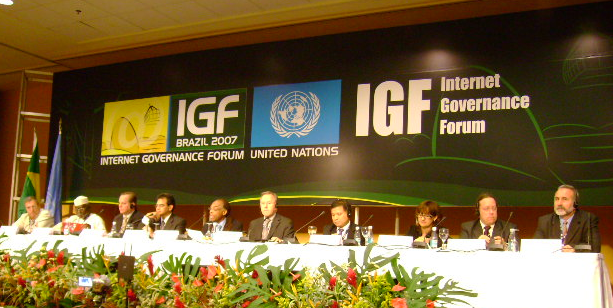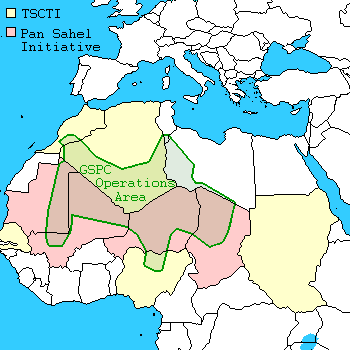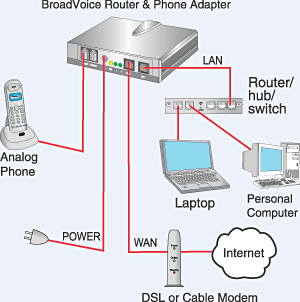|
KICTANet
KICTANet Trust is a multistakeholder think tank for information and communications technology policy formulation whose work spans stakeholder engagement, capacity building, research, and policy advocacy. The network was initially designed to welcome multistakeholder participation due to the ‘perceived strength and effectiveness in joint collaborative policy advocacy activities, which would be based on pooling skills and resources,’Adam, James, Munyua & Wanjira, 2007:7. as opposed to wasting resources in ‘competing, overlapping advocacy’. Its operating slogan was, ‘let’s talk, though we may not agree’. Tina James, who worked with CATIA when it supported the creation of KICTANet, points out: ‘the creation of KICTANet was just the right process at the right time.' With government and other stakeholders apparently relying on it, KICTANet therefore continued after the ICT policy was adopted, leading to ‘quite a lot of successes’ like the 2010 Kenya ICT Master Plan ... [...More Info...] [...Related Items...] OR: [Wikipedia] [Google] [Baidu] |
Information And Communications Technology
Information and communications technology (ICT) is an extensional term for information technology (IT) that stresses the role of unified communications and the integration of telecommunications (telephone lines and wireless signals) and computers, as well as necessary enterprise software, middleware, storage and audiovisual, that enable users to access, store, transmit, understand and manipulate information. ICT is also used to refer to the convergence (telecommunications), convergence of audiovisuals and telephone networks with computer networks through a single cabling or link system. There are large economic incentives to merge the telephone networks with the computer network system using a single unified system of cabling, signal distribution, and management. ICT is an umbrella term that includes any communication device, encompassing radio, television, cell phones, computer and network hardware, satellite systems and so on, as well as the various services and appliances with ... [...More Info...] [...Related Items...] OR: [Wikipedia] [Google] [Baidu] |
M-Pesa
M-PESA (M for mobile, ''PESA'' is Swahili language, Swahili for money) is a mobile banking, mobile phone-based money transfer service, payments and Micro-finance, micro-financing service, launched in 2007 by Vodafone and Safaricom, the largest mobile network operator in Kenya. It has since expanded to Tanzania, Mozambique, DRC, Lesotho, Ghana, Egypt, Afghanistan, South Africa and Ethiopia. The rollouts in India, Romania, and Albania were terminated amid low market uptake. M-PESA allows users to deposit, withdraw, transfer money, pay for goods and services (''Lipa na M-PESA'', Swahili language, Swahili for "Pay with M-PESA"), access credit and savings, all with a mobile device. The service allows users to deposit money into an account stored on their cell phones, to send balances using Personal identification number, PIN-secured Short Message Service, SMS text messages to other users, including sellers of goods and services, and to redeem deposits for regular money. Users are cha ... [...More Info...] [...Related Items...] OR: [Wikipedia] [Google] [Baidu] |
Internet Governance Forum
The Internet Governance Forum (IGF) is a multistakeholder governance group for policy dialogue on issues of Internet governance. It brings together all stakeholders in the Internet governance debate, whether they represent governments, the private sector or civil society, including the technical and academic community, on an equal basis and through an open and inclusive process."About the Internet Governance Forum" , Internet Governance Forum. Retrieved 14 April 2015. The establishment of the IGF was formally announced by the Secretary-General in July 2006. It was first convened in October–November 2006 and has held an annual meeting since then. History and devel ...
|
Sustainable Development Goals
The ''2030 Agenda for Sustainable Development'', adopted by all United Nations (UN) members in 2015, created 17 world Sustainable Development Goals (SDGs). The aim of these global goals is "peace and prosperity for people and the planet" – while tackling climate change and working to preserve oceans and forests. The SDGs highlight the connections between the environmental, social and economic aspects of sustainable development. Sustainability is at the center of the SDGs, as the term ''sustainable development'' implies. These goals are ambitious, and the reports and outcomes to date indicate a challenging path. Most, if not all, of the goals are unlikely to be met by 2030. Rising inequalities, climate change, and biodiversity loss are topics of concerns threatening progress. The COVID-19 pandemic in 2020 to 2023 made these challenges worse, and some regions, such as Asia, have experienced significant setbacks during that time. There are cross-cutting issues and synergy, syner ... [...More Info...] [...Related Items...] OR: [Wikipedia] [Google] [Baidu] |
Mailing List
A mailing list is a collection of names and addresses used by an individual or an organization to send material to multiple recipients. Mailing lists are often rented or sold. If rented, the renter agrees to use the mailing list only at contractually agreed-upon times. The mailing list owner typically enforces this by " salting" (known as "seeding" in direct mail) the mailing list with fake addresses and creating new salts for each time the list is rented. Unscrupulous renters may attempt to bypass salts by renting several lists and merging them to find common, valid addresses. Mailing list brokers exist to help organizations rent their lists. For some list owners, such as specialized niche publications or charitable groups, their lists may be some of their most valuable assets, and mailing list brokers help them maximize the value of their lists. Transmission may be paper-based or electronic. Each has its strengths, although a 2022 article claimed that compared to email, " di ... [...More Info...] [...Related Items...] OR: [Wikipedia] [Google] [Baidu] |
Website
A website (also written as a web site) is any web page whose content is identified by a common domain name and is published on at least one web server. Websites are typically dedicated to a particular topic or purpose, such as news, education, commerce, entertainment, or social media. Hyperlinking between web pages guides the navigation of the site, which often starts with a home page. The most-visited sites are Google, YouTube, and Facebook. All publicly-accessible websites collectively constitute the World Wide Web. There are also private websites that can only be accessed on a private network, such as a company's internal website for its employees. Users can access websites on a range of devices, including desktops, laptops, tablets, and smartphones. The app used on these devices is called a web browser. Background The World Wide Web (WWW) was created in 1989 by the British CERN computer scientist Tim Berners-Lee. On 30 April 1993, CERN announced that the ... [...More Info...] [...Related Items...] OR: [Wikipedia] [Google] [Baidu] |
African Union
The African Union (AU) is a continental union of 55 member states located on the continent of Africa. The AU was announced in the Sirte Declaration in Sirte, Libya, on 9 September 1999, calling for the establishment of the African Union. The bloc was launched on 9 July 2002 in Durban, South Africa. The intention of the AU was to replace the Organisation of African Unity (OAU), established on 25 May 1963 in Addis Ababa by 32 signatory governments; the OAU was disbanded on 9 July 2002. The most important decisions of the AU are made by the Assembly of the African Union, a semi-annual meeting of the heads of state and government of its member states. The AU's secretariat, the African Union Commission, is based in Addis Ababa. The largest city in the AU is Lagos, Nigeria while the list of urban areas in Africa by population, largest urban agglomeration is Cairo, Egypt. The African Union has more than 1.3 billion people and an area of around and includes world landmarks such as the ... [...More Info...] [...Related Items...] OR: [Wikipedia] [Google] [Baidu] |
Public Participation
Public participation, also known as citizen participation or patient and public involvement, is the inclusion of the public in the activities of any organization or project. Public participation is similar to but more inclusive than stakeholder engagement. Generally public participation seeks and facilitates the involvement of those potentially affected by or interested in a decision. This can be in relation to individuals, governments, institutions, companies or any other entities that affect public interests. The principle of public participation holds that those who are affected by a decision have a right to be involved in the decision-making process. Public participation implies that the public's contribution will influence the decision. Public participation may be regarded as a form of empowerment and as a vital part of democratic governance. In the context of knowledge management, the establishment of ongoing participatory processes is seen by some as the facilitator of c ... [...More Info...] [...Related Items...] OR: [Wikipedia] [Google] [Baidu] |
Voice Over IP
Voice over Internet Protocol (VoIP), also known as IP telephony, is a set of technologies used primarily for voice communication sessions over Internet Protocol (IP) networks, such as the Internet. VoIP enables voice calls to be transmitted as data packets, facilitating various methods of voice communication, including traditional applications like Skype, Microsoft Teams, Google Voice, and VoIP phones. Regular telephones can also be used for VoIP by connecting them to the Internet via analog telephone adapters (ATAs), which convert traditional telephone signals into digital data packets that can be transmitted over IP networks. The broader terms Internet telephony, broadband telephony, and broadband phone service specifically refer to the delivery of voice and other communication services, such as fax, SMS, and voice messaging, over the Internet, in contrast to the traditional public switched telephone network (PSTN), commonly known as plain old telephone service (POTS) ... [...More Info...] [...Related Items...] OR: [Wikipedia] [Google] [Baidu] |
Kenya
Kenya, officially the Republic of Kenya, is a country located in East Africa. With an estimated population of more than 52.4 million as of mid-2024, Kenya is the 27th-most-populous country in the world and the 7th most populous in Africa. Kenya's capital and largest city is Nairobi. Its second-largest and oldest city is Mombasa, a major port city located on Mombasa Island. Other major cities within the country include Kisumu, Nakuru & Eldoret. Going clockwise, Kenya is bordered by South Sudan to the northwest (though much of that border includes the disputed Ilemi Triangle), Ethiopia to the north, Somalia to the east, the Indian Ocean to the southeast, Tanzania to the southwest, and Lake Victoria and Uganda to the west. Kenya's geography, climate and population vary widely. In western, rift valley counties, the landscape includes cold, snow-capped mountaintops (such as Batian, Nelion and Point Lenana on Mount Kenya) with vast surrounding forests, wildlife and ... [...More Info...] [...Related Items...] OR: [Wikipedia] [Google] [Baidu] |
Policy
Policy is a deliberate system of guidelines to guide decisions and achieve rational outcomes. A policy is a statement of intent and is implemented as a procedure or protocol. Policies are generally adopted by a governance body within an organization. Policies can assist in both ''subjective'' and ''objective'' decision making. Policies used in subjective decision-making usually assist senior management with decisions that must be based on the relative merits of a number of factors, and as a result, are often hard to test objectively, e.g. work–life balance policy. Moreover, governments and other institutions have policies in the form of laws, regulations, procedures, administrative actions, incentives and voluntary practices. Frequently, resource allocations mirror policy decisions. Policies intended to assist in objective decision-making are usually operational in nature and can be objectively tested, e.g. a password policy. The term may apply to government, public se ... [...More Info...] [...Related Items...] OR: [Wikipedia] [Google] [Baidu] |
Information And Communications Technology
Information and communications technology (ICT) is an extensional term for information technology (IT) that stresses the role of unified communications and the integration of telecommunications (telephone lines and wireless signals) and computers, as well as necessary enterprise software, middleware, storage and audiovisual, that enable users to access, store, transmit, understand and manipulate information. ICT is also used to refer to the convergence (telecommunications), convergence of audiovisuals and telephone networks with computer networks through a single cabling or link system. There are large economic incentives to merge the telephone networks with the computer network system using a single unified system of cabling, signal distribution, and management. ICT is an umbrella term that includes any communication device, encompassing radio, television, cell phones, computer and network hardware, satellite systems and so on, as well as the various services and appliances with ... [...More Info...] [...Related Items...] OR: [Wikipedia] [Google] [Baidu] |







